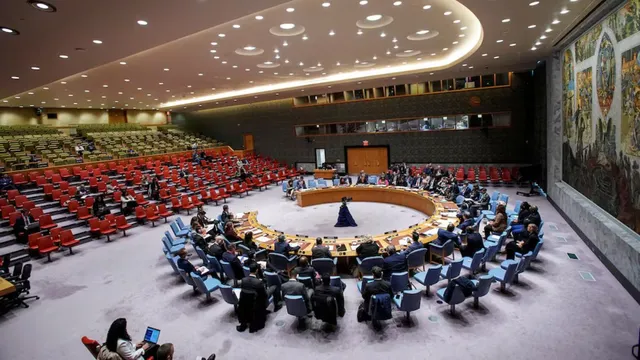- By Ajeet Kumar
- Tue, 06 May 2025 11:32 AM (IST)
- Source:JND
The United Nations Security Council members raised tough questions for Pakistan at its informal session, sources in New York told news agency ANI about the closed-door UNSC meeting convened on Kashmir. The 15-nation Security Council held deliberations on Monday afternoon amid growing tensions between India and Pakistan.
There was no statement published by the UN body following the "closed consultations" that was requested by Pakistan, a non-permanent member of the Council whose presidency for the month of May is currently held by Greece, a permanent representative to the United Nations.
World class embarrasement of Pakistan
Sources told ANI that UN Security Council members raised tough questions for Pakistan at its informal closed-door session. The members refused to accept the "false flag" narrative planted by the Pakistani side and asked whether the Lashkar-e-Taiba, a proscribed terror organisation with deep ties to Pakistan, was likely to be involved in the terror attack.
Sources said, there was broad condemnation of the terrorist attack and recognition of the need for accountability. Some members specifically brought up targeting of tourists on the basis of their religious faith. Many members expressed concern that Pakistan's missile tests and nuclear rhetoric were escalatory factors. Pakistan on Monday conducted a training launch of a Fatah Series surface-to-surface missile with a range of 120 kilometres as part of the ongoing "Exercises Indus",
Pakistan's efforts to internationalize the situation also failed. They were advised to sort out the issues bilaterally with India.
What happened at UN? 6 points
- UN Security Council members raised tough questions for Pakistan at its informal session today.
- They refused to accept the “false flag” narrative and asked whether LeT was likely to be involved.
-There was broad condemnation of the terrorist attack and recognition of the need for accountability.
-Some members specifically brought up targeting of tourists on the basis of their religious faith.
- Many members expressed concern that Pakistan’s missile tests and nuclear rhetoric were escalatory factors.
- Pakistan’s efforts to internationalise the situation also failed. They were advised to sort out the issues bilaterally with India.
Meanwhile, Dawn News has reported that water flows in the Chenab, recorded at the Marala headworks, decreased from up to 35,000 cusecs on Sunday to about 3,100 cusecs on Monday morning. Chenab is very important for Pakistan's irrigation system, as its canals, including the UCC and BRB canals, irrigate a vast tract of agricultural land in Punjab.
India had held the Indus Water treaty in abeyance following the Pahalgam attack and the shortage of water is seen as a likely fallout of that.
(With inputs from agency)

